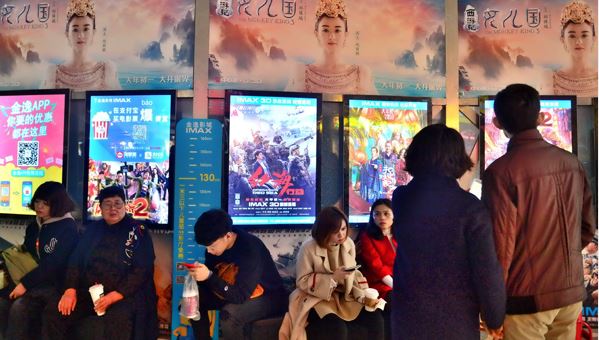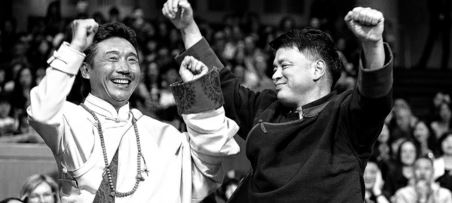
From the People’s Daily app.
This is Story in the Story.
China's total box office increased by 13.45 percent in 2017, making the Chinese film market an engine of the global box office, according to a report released Tuesday.
The Chinese Film Association and Film Art Center of China Federation of Literacy and Art Circle jointly released the international version of the 2018 Research Report on the Chinese Film Industry at the ongoing Shanghai International Film and TV Festival.
Among the total box office, 30 billion yuan came from domestic movies, accounting for 53.84 percent of the market, 7.6 percent higher than that of imported movies.
Of the top 10 movies in the Chinese market last year, five were domestically produced.
The report showed that China's top 10 box office films are no longer just local films and Hollywood blockbusters, as movies made in other countries such as India appeared on the list last year.
The Chinese box office stood at 55.9 billion yuan ($8.6 billion) in 2017. Nearly 1,000 movies including feature films, animated films, educational movies, and documentaries were produced in China last year, according to the report.
China's box office takings totaled 20 billion yuan ($3.08 billion) in the first three months of this year, surpassing the $2.89 billion raked in by the US.
This is the first time China topped global box office earnings in a quarter, according to Zhang Hong, vice chairman of the China Film Association, the institution behind the report.
The association has been compiling the report on China's film industry for 12 consecutive years, and this was the first time an international edition was released to introduce China's film industry to foreign peers.
Today’s Story in the Story will look at the changing landscape of China’s film market and how Chinese movie dubbing studios are breaking language barriers.

Moviegoers read film synopses on a wall display at a cinema in Nankai district, Tianjin. (Photo: China Daily)
When going to see foreign films nowadays, many choose the original version with subtitles over the dubbed versions.
However, during the 1970s and 1980s, dubbed versions of foreign films were widely enjoyed around the country thanks to professional experts from film studios, like the Changchun Film Dubbing Studio in Northeast China's Jilin Province.
As the birthplace of dubbing films in China, the state-owned Changchun Film Dubbing Studio was established in the 1950s, and it produced China's first dubbed film, "Private Aleksandr Matrosov."
The studios enjoyed a golden era in the early 1980s when China began its reform and opening up to the outside world.
Chinese audiences could experience the eternal topic of love from "Roman Holiday," taste British humor from the comedy, "The Million Pound Note," or be amazed by the dazzling music and dance from the Indian flick, "Caravan."
For the production of modern dubbed films, voice actors could voice their parts separately and be put together with the aid of computers.
However, things were entirely different in the past.

Chinese director Sonthar Gyal (right) and actor Yungdrung Gayl celebrate as their movie Ala Changso won the jury grand prix at the 21st SIFF Golden Goblet Awards. (Photo: China Daily)
"Back in the old days, voice artists gathered in the studio and did the scene together. Everyone was cautious not to make a mistake, or the whole team would have to redo the scene." Wang Xiaowei, the director of the studio, recalled.
Hu Lianhua is a veteran voice artist with Changchun Film Dubbing Studio. One of his most famous performances was voicing Don Vito Corleone in "The Godfather."
"From the translation stage, we would try to stay as close as possible to the original scene, and the lines have to synchronize with what the actor says on the screen. Most of the time, we're acting instead of just voicing the part," Hu said. "A good voice artist has great potential to be a good actor, but not necessarily vice versa.”
Thanks to the devotion of these voice artists, language barriers were broken. But globalization nearly silenced the public clamor for dubbed films.
For studio director Wang Xiaowei, embracing new opportunities is key to reviving the nostalgic cinematic form.
"We're both introducing foreign productions and promoting our own quality productions, to keep the dubbing tradition alive and provide more choices for the audience," said Wang.
(Produced by Nancy Yan Xu, Raymond Mendoza and Lance Crayon. Music by: bensound.com. Text from China Daily and Xinhua.)


